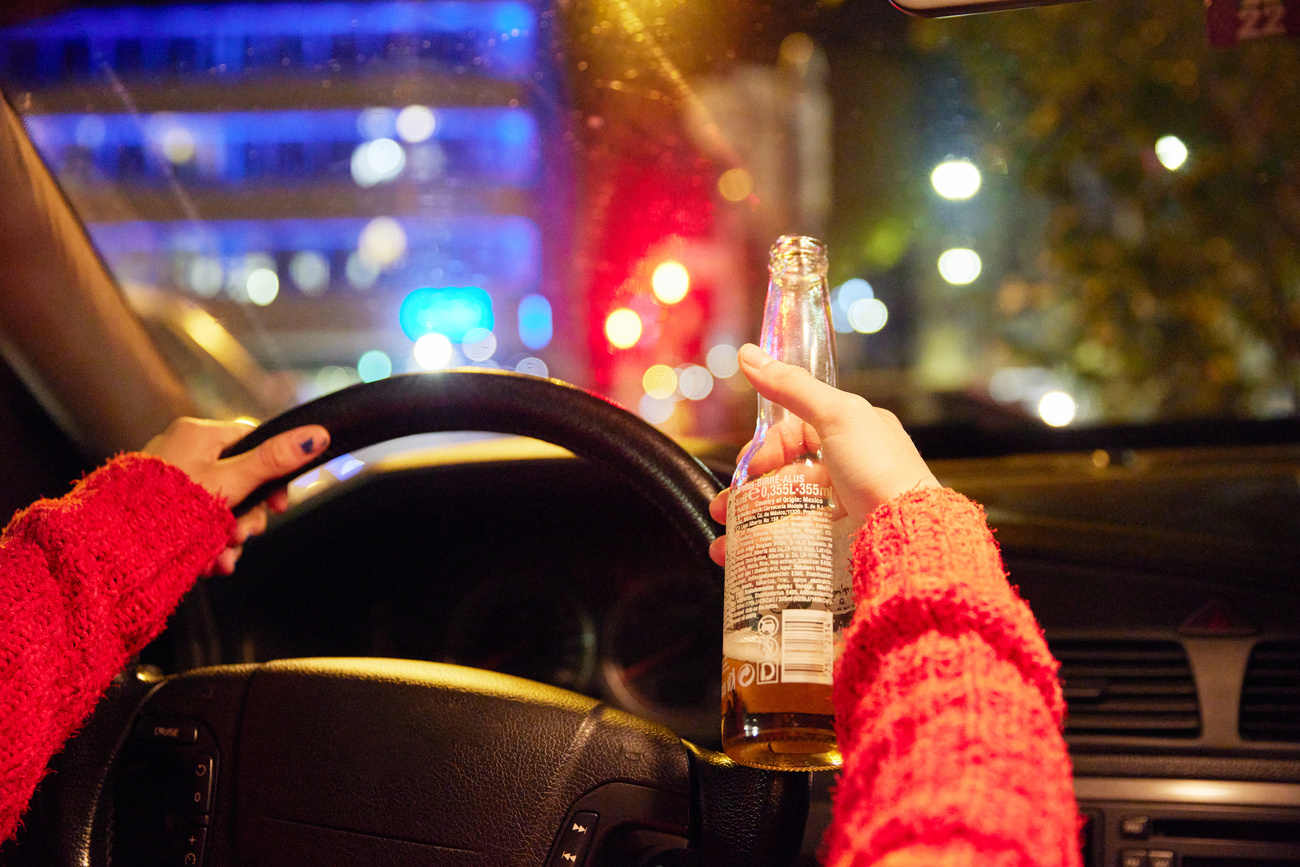
Drink-driving crashes increase in Switzerland

The number of alcohol-related road accidents increased in Switzerland in 2021. Geneva remains the canton with the most serious accidents per 10,000 inhabitants, while Valais has the most fatal accidents, according to automobile association Touring Club Switzerland (TCS).
Last year 3,815 alcohol-related accidents took place on Swiss roads, 57 more than in 2020. Of these, 364 resulted in serious injuries or deaths, the TCS said on Tuesday.
Geneva has the highest number of serious accidents, with 0.95 accidents per 10,000 inhabitants in 2021. The canton has been at the top of the ranking for five years, but its rate for 2021 is lower than the previous two years.
Fifteen fatal accidents linked to alcohol were recorded on Swiss roads in 2021, compared with 23 a year earlier. Five of these were in Valais.
The safest roads are to be found in German-speaking Switzerland: Appenzell Inner Rhodes, Glarus and Obwalden have no serious accidents, according to the TCS.
The organisation reminded people that, as the end-of-year festivities approach, they have to choose between drinking and driving.

More
Binge-drinking and psychological stress up among young Swiss

In compliance with the JTI standards
More: SWI swissinfo.ch certified by the Journalism Trust Initiative




























You can find an overview of ongoing debates with our journalists here . Please join us!
If you want to start a conversation about a topic raised in this article or want to report factual errors, email us at english@swissinfo.ch.